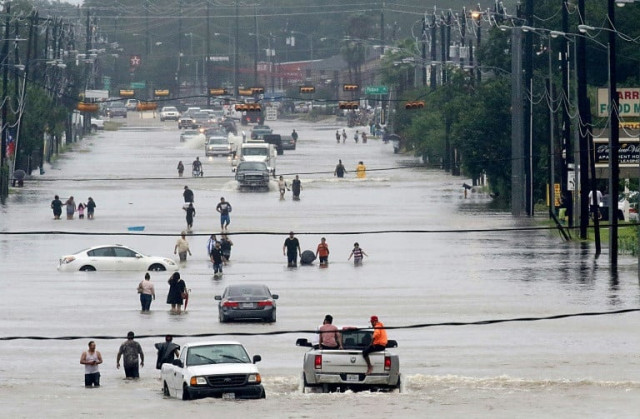Pakistan beset with challenges due to global warming
Coordinated climate action vital to tackling adverse climate change impacts

PHOTO: AFP
“However, tackling these challenges, which are badly affecting the country’s socio-economic sectors, lives and livelihoods of the people, particularly farmers, the marginalised and poor communities , requires urgent and nationally-coordinated response,” he said during his keynote address to the participants of the ‘Rising Pakistan’ event the EcoPartnerships - Climate Initiatives Platform, an initiative of the United Nations Environment Programme (UNEP).
The core of the EcoPartnerships Programme is the peer-to-peer collaboration that occurs at the partner level. These partners pursue innovative pilot projects that are recognized and facilitated by a Secretariat in each country.
Aslam warned, “Failing to do so would only exacerbate impacts of climate change by causing economic slowdown, increasing poverty, hunger, mal-nutrition levels and disease burden.” He said further that due to global warming the country is facing a growing water crisis as rainfall patterns are rapidly shifting and showing declining trends, which could increase drought frequency and intensity as well as speed up groundwater depletion. Besides, the country’s glaciers are melting at a much faster rate, causing a rise in frequency and intensity of the riverine floods, particularly in upper parts of the country.
As a result, livelihoods of farming communities in northern and southern regions and mountain communities in northwest regions are a stake, the prime minister’s adviser told the event participants.
Published in The Express Tribune, October 9th, 2019.



















COMMENTS
Comments are moderated and generally will be posted if they are on-topic and not abusive.
For more information, please see our Comments FAQ